A doksi online olvasásához kérlek jelentkezz be!
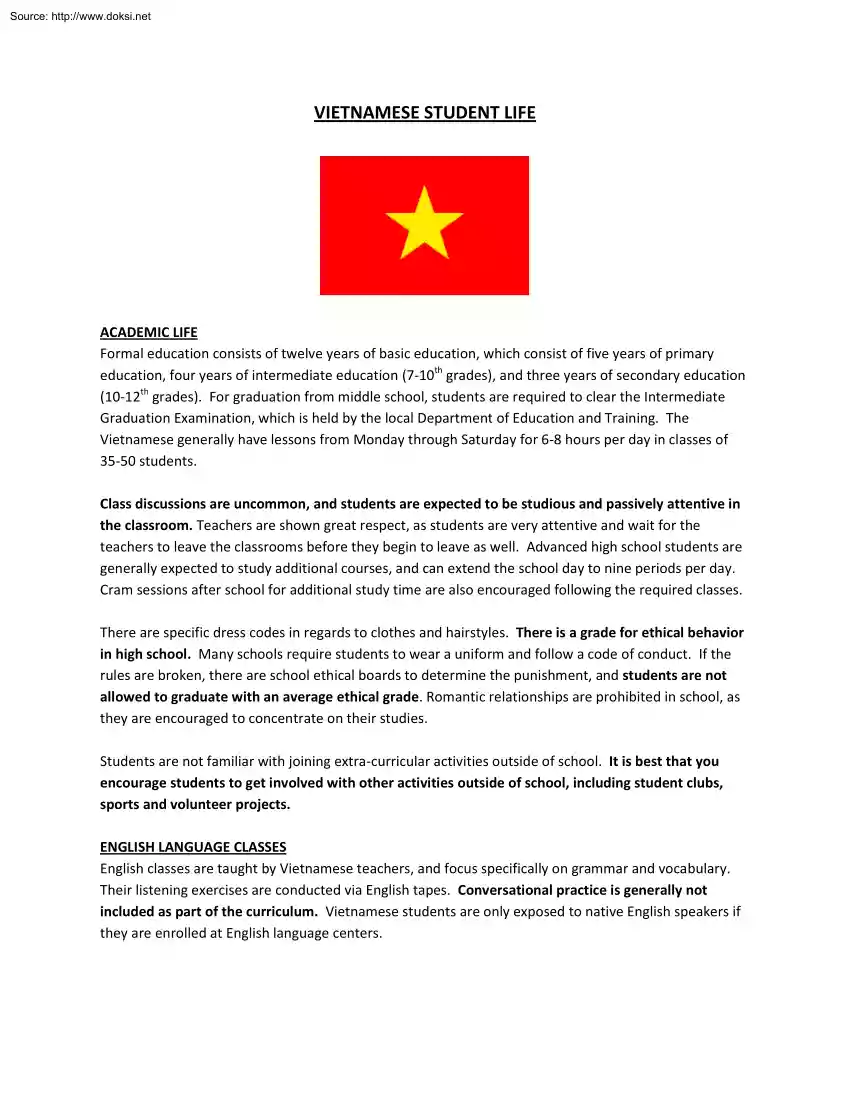
A doksi online olvasásához kérlek jelentkezz be!
Nincs még értékelés. Legyél Te az első!
Legnépszerűbb doksik ebben a kategóriában
Tartalmi kivonat
Source: http://www.doksinet VIETNAMESE STUDENT LIFE ACADEMIC LIFE Formal education consists of twelve years of basic education, which consist of five years of primary education, four years of intermediate education (7-10th grades), and three years of secondary education (10-12th grades). For graduation from middle school, students are required to clear the Intermediate Graduation Examination, which is held by the local Department of Education and Training. The Vietnamese generally have lessons from Monday through Saturday for 6-8 hours per day in classes of 35-50 students. Class discussions are uncommon, and students are expected to be studious and passively attentive in the classroom. Teachers are shown great respect, as students are very attentive and wait for the teachers to leave the classrooms before they begin to leave as well. Advanced high school students are generally expected to study additional courses, and can extend the school day to nine periods per day. Cram sessions
after school for additional study time are also encouraged following the required classes. There are specific dress codes in regards to clothes and hairstyles. There is a grade for ethical behavior in high school. Many schools require students to wear a uniform and follow a code of conduct If the rules are broken, there are school ethical boards to determine the punishment, and students are not allowed to graduate with an average ethical grade. Romantic relationships are prohibited in school, as they are encouraged to concentrate on their studies. Students are not familiar with joining extra-curricular activities outside of school. It is best that you encourage students to get involved with other activities outside of school, including student clubs, sports and volunteer projects. ENGLISH LANGUAGE CLASSES English classes are taught by Vietnamese teachers, and focus specifically on grammar and vocabulary. Their listening exercises are conducted via English tapes. Conversational practice
is generally not included as part of the curriculum. Vietnamese students are only exposed to native English speakers if they are enrolled at English language centers. Source: http://www.doksinet FAMILY LIFE & LIVING SITUATION Life in Vietnam centers on the family. Succeeding in school and working hard honors one’s parents and the family name. There is deep respect for parents and ancestors, and is extended to all elders Children are becoming more independent and allowed to speak out their own ideas in the family. Today, parents are more open to discussion than physical punishment. It is not unusual for three generations to live under one roof. There are four main characteristics of Vietnamese homes: respect for elders, speak only Vietnamese in the home, worship Buddha and ancestors, and every member has a function in the household. Children are usually expected to participate in household chores at a very young age. Parents expect their children to support them when they are
older. GREETINGS and NON-VERBAL COMMUNICATION The general greeting is usually a smile and a nod. Hugging is only exchanged between close friends, and shaking hands is considered too formal. Vietnamese show great respect to elders, as is shown by clasping both hands together against their chests and bowing. Beckoning with a finger may be seen as rude because it is used as a sign of contempt toward an animal or inferior. Most Vietnamese may just smile and nod when asked a question. Keep in mind that this may mean that they hear you, but they may not understand you. You might want to clarify with them that they understand. Vietnamese also feel it is offensive to look up when conversing with another person Remember to emphasize that eye-contact is important in American culture. The Vietnamese love to give gifts, but it is considered rude to open them in front of people. Disagreeing with an authoritative person is considered the same as challenging a senior person’s social status. When
complimented, the recipient will usually acknowledge it with a smile, not a “thank you” It is important to explain the use of “thank you” in American culture. Physical expressions of affection in public between males and females are considered rude. UNIQUE VIETNAMESE FOODS Chicken is a mainstay in the diet of the Vietnamese, and the food is mainly based on rice, soy sauce and fish sauce. The Vietnamese also love their fruits, such as longan, coconut, jackfruit, etc Pho, pronounced “fuh”, is a hot beef noodle soup, which is very common and many students may crave it while living in America. They are not accustomed to milk and cheese Although they drink a large amount of hot green tea and coffee, rarely is sugar, milk or lemon added to the drinks. Chopsticks and bowls are used for eating, and bowls are brought to the mouth to eat. Fruit is served as a dessert or snack. Certain foods that Vietnamese students may not be used to eating include butter, mustard, salmon and pizza.
Source: http://www.doksinet POLITICS AND TABOO TOPICS Citizens are taught at an early age to forget their own interests for the sake of the country. They are a very proud people, and may find it offensive to disagree with communism. They may also be very sensitive about discussing the Vietnam War because students are taught throughout their lives about the North Vietnamese Victory. Students may feel uncomfortable discussing sex There is a distrust of Western medicine to treat illnesses. Counseling is not preferred, as it may bring disgrace to the family. Serious illnesses are usually kept a secret inside the family Due to taboo relationships between men and women, some female students may be hesitant to see a male doctor. MAJOR HOLIDAYS IN VIETNAM Students may feel homesick during national holidays, which are usually spent with family. You might want to ask them to share their festivals with you. The Moon Festival: Tet Festival (Lunar New Year – Jan/Feb): beginning of the new year
and spring Tet Doan Ngo (The Mid-Year Festival): Annual meeting of family to commemorate the death of a loved one (day depends on loved one’s death) ABOUT VIETNAM Vietnam is the easternmost country on the Indochina Peninsula in Southeast Asia. The country is bordered by China to the north, Laos to the northwest, and Cambodia to the southwest. With a population of over 86 million, the majority of its citizens are Buddhist. Vietnamese live by the Recitation of creeds: love your country, support your community, protect the environment, live with good intentions, and be courageous. Many languages and dialects are spoken in Vietnam, but Vietnamese is the official language and most widely used. English has been rising, and many language schools are opening throughout the country. ADDITIONAL RESOURCES: http://www.vietnamembassy-usaorg/learn about vietnam/culture/literature/ http://www.vietnam-culturecom/ https://www.ciagov/library/publications/the-world-factbook/geos/vmhtml
http://www.vietnamcom/
after school for additional study time are also encouraged following the required classes. There are specific dress codes in regards to clothes and hairstyles. There is a grade for ethical behavior in high school. Many schools require students to wear a uniform and follow a code of conduct If the rules are broken, there are school ethical boards to determine the punishment, and students are not allowed to graduate with an average ethical grade. Romantic relationships are prohibited in school, as they are encouraged to concentrate on their studies. Students are not familiar with joining extra-curricular activities outside of school. It is best that you encourage students to get involved with other activities outside of school, including student clubs, sports and volunteer projects. ENGLISH LANGUAGE CLASSES English classes are taught by Vietnamese teachers, and focus specifically on grammar and vocabulary. Their listening exercises are conducted via English tapes. Conversational practice
is generally not included as part of the curriculum. Vietnamese students are only exposed to native English speakers if they are enrolled at English language centers. Source: http://www.doksinet FAMILY LIFE & LIVING SITUATION Life in Vietnam centers on the family. Succeeding in school and working hard honors one’s parents and the family name. There is deep respect for parents and ancestors, and is extended to all elders Children are becoming more independent and allowed to speak out their own ideas in the family. Today, parents are more open to discussion than physical punishment. It is not unusual for three generations to live under one roof. There are four main characteristics of Vietnamese homes: respect for elders, speak only Vietnamese in the home, worship Buddha and ancestors, and every member has a function in the household. Children are usually expected to participate in household chores at a very young age. Parents expect their children to support them when they are
older. GREETINGS and NON-VERBAL COMMUNICATION The general greeting is usually a smile and a nod. Hugging is only exchanged between close friends, and shaking hands is considered too formal. Vietnamese show great respect to elders, as is shown by clasping both hands together against their chests and bowing. Beckoning with a finger may be seen as rude because it is used as a sign of contempt toward an animal or inferior. Most Vietnamese may just smile and nod when asked a question. Keep in mind that this may mean that they hear you, but they may not understand you. You might want to clarify with them that they understand. Vietnamese also feel it is offensive to look up when conversing with another person Remember to emphasize that eye-contact is important in American culture. The Vietnamese love to give gifts, but it is considered rude to open them in front of people. Disagreeing with an authoritative person is considered the same as challenging a senior person’s social status. When
complimented, the recipient will usually acknowledge it with a smile, not a “thank you” It is important to explain the use of “thank you” in American culture. Physical expressions of affection in public between males and females are considered rude. UNIQUE VIETNAMESE FOODS Chicken is a mainstay in the diet of the Vietnamese, and the food is mainly based on rice, soy sauce and fish sauce. The Vietnamese also love their fruits, such as longan, coconut, jackfruit, etc Pho, pronounced “fuh”, is a hot beef noodle soup, which is very common and many students may crave it while living in America. They are not accustomed to milk and cheese Although they drink a large amount of hot green tea and coffee, rarely is sugar, milk or lemon added to the drinks. Chopsticks and bowls are used for eating, and bowls are brought to the mouth to eat. Fruit is served as a dessert or snack. Certain foods that Vietnamese students may not be used to eating include butter, mustard, salmon and pizza.
Source: http://www.doksinet POLITICS AND TABOO TOPICS Citizens are taught at an early age to forget their own interests for the sake of the country. They are a very proud people, and may find it offensive to disagree with communism. They may also be very sensitive about discussing the Vietnam War because students are taught throughout their lives about the North Vietnamese Victory. Students may feel uncomfortable discussing sex There is a distrust of Western medicine to treat illnesses. Counseling is not preferred, as it may bring disgrace to the family. Serious illnesses are usually kept a secret inside the family Due to taboo relationships between men and women, some female students may be hesitant to see a male doctor. MAJOR HOLIDAYS IN VIETNAM Students may feel homesick during national holidays, which are usually spent with family. You might want to ask them to share their festivals with you. The Moon Festival: Tet Festival (Lunar New Year – Jan/Feb): beginning of the new year
and spring Tet Doan Ngo (The Mid-Year Festival): Annual meeting of family to commemorate the death of a loved one (day depends on loved one’s death) ABOUT VIETNAM Vietnam is the easternmost country on the Indochina Peninsula in Southeast Asia. The country is bordered by China to the north, Laos to the northwest, and Cambodia to the southwest. With a population of over 86 million, the majority of its citizens are Buddhist. Vietnamese live by the Recitation of creeds: love your country, support your community, protect the environment, live with good intentions, and be courageous. Many languages and dialects are spoken in Vietnam, but Vietnamese is the official language and most widely used. English has been rising, and many language schools are opening throughout the country. ADDITIONAL RESOURCES: http://www.vietnamembassy-usaorg/learn about vietnam/culture/literature/ http://www.vietnam-culturecom/ https://www.ciagov/library/publications/the-world-factbook/geos/vmhtml
http://www.vietnamcom/
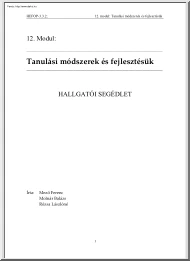
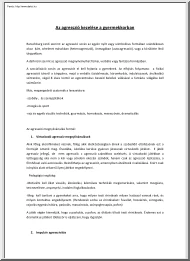
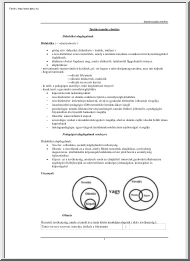
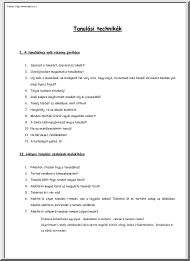
 Megmutatjuk, hogyan lehet hatékonyan tanulni az iskolában, illetve otthon. Áttekintjük, hogy milyen a jó jegyzet tartalmi, terjedelmi és formai szempontok szerint egyaránt. Végül pedig tippeket adunk a vizsga előtti tanulással kapcsolatban, hogy ne feltétlenül kelljen beleőszülni a felkészülésbe.
Megmutatjuk, hogyan lehet hatékonyan tanulni az iskolában, illetve otthon. Áttekintjük, hogy milyen a jó jegyzet tartalmi, terjedelmi és formai szempontok szerint egyaránt. Végül pedig tippeket adunk a vizsga előtti tanulással kapcsolatban, hogy ne feltétlenül kelljen beleőszülni a felkészülésbe.